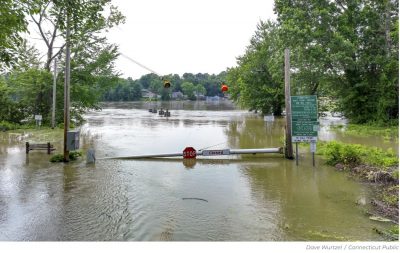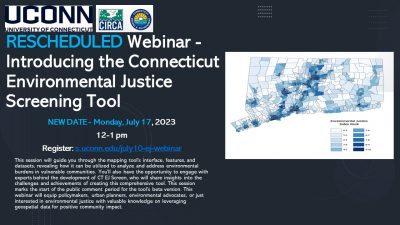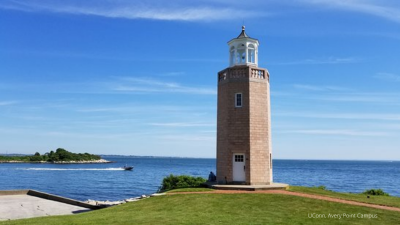Local experts are brainstorming with Connecticut municipalities about possible resilience measures against climate change’s impact on future storms, as more rain is expected through this weekend.
Rain showers have slammed the state and the Northeast for over a week, flooding rivers, farms, roads, and buildings. Several more inches of rain hit Vermont, prompting emergency federal aid and causing additional flooding.
Greg Carbin, chief of forecast operations at the NOAA’s Weather Prediction Center, said climate change has locked in this period of heavy precipitation, since warmer oceans lead more water vapor to end up in the atmosphere. And it’s happening more often.
“We’ve had a number of repeat episodes with rainfall extremes that in the past you would expect to occur maybe every few decades, maybe once every hundred years,” Carbin said. “But they seem to be on the increase, which we would expect with a warmer climate.”
David Murphy, the director of resilience planning at the Connecticut Institute for Resilience and Climate Adaptation (CIRCA), has been working directly with towns on solutions for mitigating flooding. Those range from increasing pipe capacity, to creating sidewalk rain gardens. But it’s not an easy or quick process.
“Maybe they have funds to replace two bridges and not five. And so the next time there’s a flood, they see the results of that: two of them didn’t flood as badly and three of them may have washed out,” Murphy said. “So they do make progress.”
Murphy said while Connecticut towns have overall done a good job strategically rebuilding after past floods, it always takes more time, and funding, that towns don’t always have.
Some of the hottest days in Earth’s record happened the first week of July. Climate change is already causing weather events, from heat waves to drought, to be more frequent and intense.
Even more, peak hurricane season is not far off, and Murphy is worried about towns being able to recover before a possible big storm arrives.
“It’s about a year for the average washout of a major road to get completely restored, it just takes time,” Murphy said. “And so if something hits us in August, September, there may be areas that just have not yet had a chance to rebuild.”
State officials are also working to face the issue head-on: in June, Gov. Ned Lamont announced state funding that named Bristol, Hartford, Manchester, and Norwalk as recipients for flood resilience planning. Several other projects were also funded in the nearly $9 million awarded to 21 inaugural grant winners.



